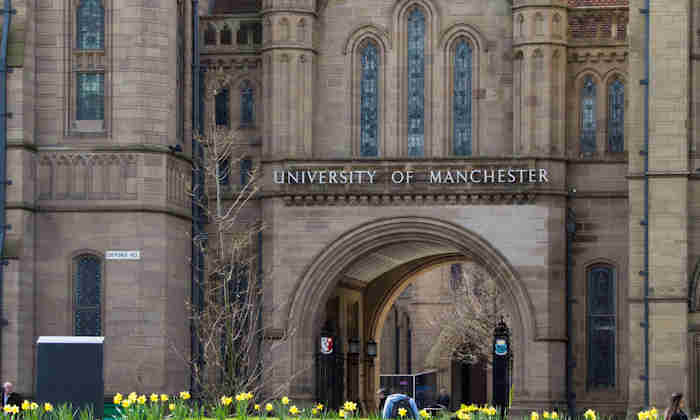Achieving the University’s ambitions
10 May 2017
Implications for staff

The University of Manchester has a bold ambition to be a world leading institution, with a reputation based on academic excellence. In order to meet this ambition, we must improve the quality of our research and student experience in some areas and ensure the financial sustainability of the University. Realising this ambition will require a capacity to invest in our strategic priorities.
Detailed plans to deliver a significant growth in funds from distance learning, philanthropy, research and grant recovery, international student recruitment, and savings across the PSS are already being implemented. However it has been recognised that further action is necessary to improve the quality of our research, reduce student numbers on some programmes to improve the student experience, and improve our effectiveness and efficiency in some areas.
The Board of Governors has therefore approved proposals from the senior staff of the University to commence consultation with the Trade Unions in relation to reductions of up to 171 posts, in order to deliver our strategy, secure future financial sustainability and allow strategic investment in priority areas. We fully recognise that this will bring challenges to the collegiate nature of our University and uncertainties for many staff. We assure you that we will use our best endeavours to safeguard the core mission of the University and its integrity as a collegiate community.
The proposals, which will now progress to consultation with the Trade Unions, are summarised below:
- In order for the Faculty of Biology, Medicine and Health to achieve financial sustainability, meet the significant shortfall in the current budget of the Faculty and create the capacity for investment to improve overall performance, a reduction of 65 academic posts is proposed.
- In the School of Arts, Languages and Cultures, an increase in undergraduate student entry standards will lead to improved student experience and outcomes. This will require a reduction in student numbers across some programmes and a consequential proposed reduction of 35 academic posts and posts involved in primarily academic activities.
- Alliance Manchester Business School will reduce student intake numbers on some of its degree programmes. This will improve student experience, continue to improve the quality of entry grades and student outcomes, and move towards a more consistent staff/student ratio across its divisions. There will be a consequent proposed reduction of 40 academic posts in certain areas of the School.
- The Directorate of Finance in the Professional Support Services (PSS) will move towards a more consistent structure across the three Faculties and improve efficiency and effectiveness, with a change to the teams in the Faculty of Humanities and the Faculty of Science and Engineering, resulting in a proposed reduction of 18 PSS posts.
- Restructuring within the PSS staff to improve efficiency and effectiveness in the Faculty of Science and Engineering will result in a proposed reduction of seven PSS posts in the Faculty Office, three PSS posts in the National Composites Certification and Evaluation Facility (NCCEF) and three PSS posts in the Photon Science Institute (PSI).
Changes to staff in the University are given very careful and serious consideration and the University will consult with the Trade Unions in relation to the proposals. The University is committed to ensuring that these processes are conducted fairly and transparently and will manage these through the Security of Employment Policy which has been agreed with the Trade Unions.
The University proposes to open a voluntary severance scheme for staff who are identified as ‘at risk’ in the areas outlined above, to avoid the need for compulsory redundancy if at all possible. If the required numbers cannot be achieved through a voluntary process and redeployment, the University is proposing to implement compulsory redundancies in the affected areas. This will be subject to consultation with the Trade Unions.
Colleagues in areas affected by these proposed changes are now receiving more detailed information and are being invited to staff meetings to outline the next steps. We understand that this is a difficult and anxious time for these colleagues and the University is taking steps to support those affected.
This portfolio of projects, which form part of what is now known as the M2020 Programme, are together designed to deliver a step change towards achieving Manchester 2020.
These proposals and on-going actions are intended to improve student quality and deliver a contribution of approximately £50 million per annum by 2020, to allow the University to make the strategic investments required to improve performance and achieve the efficiencies and savings to ensure financial sustainability. These strategic investments include: the creation of 100+ new, early-career academic appointments; a £1million ‘Investing in Success’ fund for existing staff; further support for our international and business engagement activities and the modernisation of our IT infrastructure.
More details about the M2020 Programme will be made available on an ongoing basis at:
We believe that these proposals are essential to meet the University’s agreed ambitions, but recognise the concerns and disruptions that will occur during this uncertain period and we can assure you that every care and attention will be taken in progressing the proposals.
Professor Dame Nancy Rothwell, President and Vice-Chancellor and Professor Colin Bailey, Deputy President and Deputy Vice-Chancellor and Chair of the M2020 Programme Board
